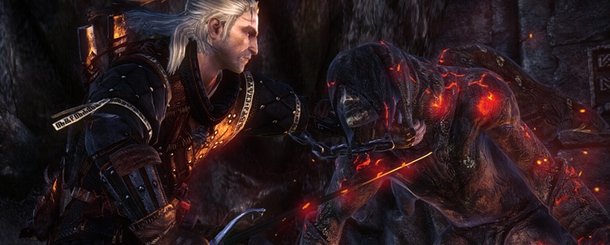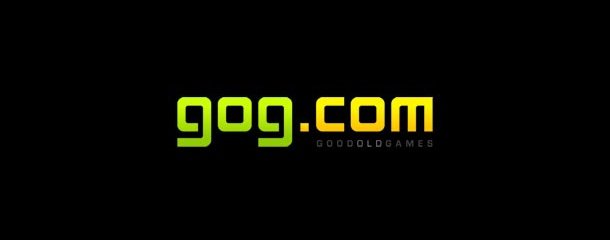Interview: CD Projekt's CEO on Witcher 2 piracy, why DRM's still not worth it

Recently, I spoke with Bohemia Interactive's CEO about the three most reviled letters in the gaming alphabet: D, R, and M. His company has been making waves with tech that slowly renders pirated games unplayable with all manner of obnoxious, sometimes hilarious effects. From where Bohemia's standing, DRM's a necessary evil. No one ever said, however, that forcing thieves to pony up couldn't be worth a laugh or two.
But that's only one perspective. So, in the wake of the announcement that GOG's version of Witcher 2 made a sizable stack of real, non-Monopoly money without any sort of DRM weighing it down, I decided to get in touch with CD Projekt. Read on for CEO and co-founder Marcin Iwinski's thoughts on DRM schemes like Bohemia's, why we should get rid of DRM altogether, how many Witcher 2 copies were pirated, and how piracy can even occasionally be beneficial.
PCG: For quite some time, CD Projekt RED's been of the opinion that DRM isn't necessary. The Witcher 2 - based on GOG sales numbers at least - seems to have vindicated your approach. Why, though? What made people want to buy it instead of pirating?
Marcin Iwinski : To answer this question properly, I have to go back in history a few years. I started CD Projekt with my high-school friend back in 1994. 1994 was a super wild time in terms of piracy, as this was the year when the software copyright laws were first established here.
From the very beginning our main competitors on the market were pirates. The question was really not if company x or y had better marketing or better releases, but more like "How can we convince gamers to go and buy the legit version and not to go to a local street vendor and buy a pirated one?" We of course experimented with all available DRM/copy protection, but frankly nothing worked. Whatever we used was cracked within a day or two, massively copied and immediately available on the streets for a fraction of our price.
We did not give up, but came up with new strategy: we started offering high value with the product - like enhancing the game with additional collectors' items like soundtracks, making-of DVDs, books, walkthroughs, etc. This, together with a long process of educating local gamers about why it makes sense to actually buy games legally, worked. And today, we have a reasonably healthy games market.
In any case, I am not saying that we have eliminated piracy or there is not piracy in the case of TW2. There is, and TW2 was [illegally] downloaded by tens of thousands of people during the first two weeks after release. Still, DRM does not work and however you would protect it, it will be cracked in no time. Plus, the DRM itself is a pain for your legal gamers – this group of honest people, who decided that your game was worth the 50 USD or Euro and went and bought it. Why would you want to make their lives more difficult?
The biggest gaming news, reviews and hardware deals
Keep up to date with the most important stories and the best deals, as picked by the PC Gamer team.
PCG: Can you offer any concrete numbers or percentages as far as Witcher 2 piracy goes?
MI : There are no stats available, but let's make a quick calculation. I was checking regularly the number of concurrent downloads on torrent aggregating sites, and for the first 6-8 weeks there was around 20-30k ppl downloading it at the same time. Let's take 20k as the average and let's take 6 weeks. The game is 14GB, so let's assume that on an average not-too-fast connection it will be 6 hours of download. 6 weeks is 56 days, which equals to 1344 hours; and with 6h of average download time to get the game it would give us 224 downloads, then let's multiply it by 20k simultaneous downloaders.
The result is roughly 4.5 million illegal downloads. This is only an estimation, and I would say that's rather on the optimistic side of things; as of today we have sold over 1M legal copies, so having only 4.5-5 illegal copies for each legal one would be not a bad ratio. The reality is probably way worse.

PCG: Even so, you're hardly in dire straits. What about other developers, though? Do you think there'd be less piracy overall if everyone just dropped DRM entirely?
MI : In my almost 20 years in the industry, I have not seen DRM that really worked (i.e. did not complicate the life of the legal gamer and at the same time protect the game). We have seen a lot of different protections, but there are only two ways you can go: Either you use light DRM, which is cracked in no time and is not a major pain for the end-user, or you go the hard way and try to super-protect the game.
Yes, it is then hard to crack, but you start messing with the operation system, the game runs much slower and - for a group of legal gamers - it will not run at all. None of these solutions really work, so why not abandon it altogether?
PCG: Why do you think so many other developers and publishers are stuck on DRM that inconveniences paying customers just as much as pirates? I mean, their most vocal customers are shouting "No! This is terrible!" at the top of their lungs. So why is it taking so long for them to listen?
MI : Fortunately and unfortunately at the same time, games are becoming huge business. And as with every growing business, there are a lot of people coming in who… have no clue about games and could work in any other industry. They are not asking themselves the question "What is the experience of a gamer?" Or "Is this proposition fair?" But rather, they just look to see if the column in Excel adds up well or not, and if they can have a good explanation for their bosses.
As funny as this might sound, DRM is the best explanation, the best "I will cover my ass" thing. I strongly believe that this is the main reason the industry has not abandoned it until today, and to be frank this annoys me a hell of a lot. You are asking, “So why is it taking so long for them to listen?” The answer is very simple: They do not listen, as most of them do not care. As long as the numbers in Excel will add up they will not change anything.
I always encourage gamers to go and vote with their wallets. That's the only way to enact real change, and I can already see it is changing. When we started GOG.com, the answer from publishers for selling their back-catalogue DRM-free was a brief and strong "NO WAY." Meanwhile, today we have over 300 games, and there are newer games coming next year.
PCG: On that note, do you think DRM's becoming less popular with developers and publishers? I mean, a lot of games are just using Steam now, and even Ubisoft finally got rid of its always online requirement.
MI : It is for sure becoming something to think about, something to consider as part of the gaming experience. It has still a way to go.
The social media revolution helps here a lot. Having all these places on Facebook, Twitter and forums where people post 24/7 – they can share their opinions much easier, faster and on a much larger scale. If they do not like how a certain game works, they can flame it in just a few hours, and that news makes its rounds quite quickly.
This is the only way to get the Excel guys moving. If they hear that they have a couple hundred or thousand negative comments on Amazon, Metacritic, Twitter, etc, they will most probably do something about it. Some of them already did.

